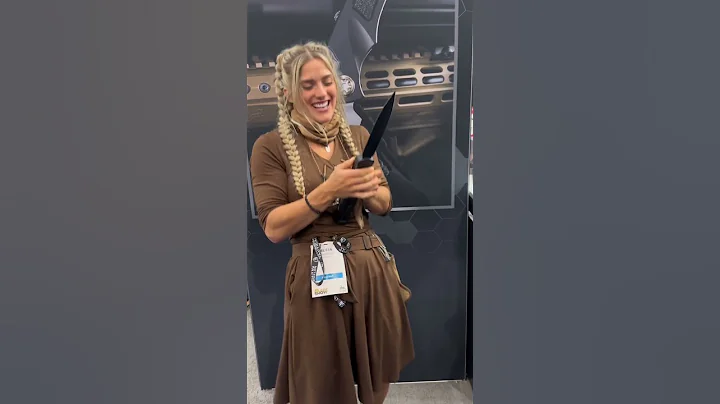
Although there are a lot of movies on the National Day file this year, there is no doubt that the only one that can compete with the movie " Changjin Lake" is " me and my father". Among them, "Chengfeng" is the one that attracts the most attention. Many netizens sighed that this year's National Day files actually showed a scene of "Wu Jing" vs. "Wu Jing". Never thought that Wu Jing's biggest opponent was himself. The movie "Me and My Fathers" continues the assembling method of " and my homeland" and " and my hometown". The Chinese film dream team is assembled again and presented in four units. The story of the "parents" from the past to the future.

The story of the chapter "Riding the Wind", based on the head of Ma Renxing and his son Ma Chengfeng, describes an outstanding iron cavalry in the Anti-Japanese War, the Jizhong Cavalry Regiment. The story of the Japanese army evacuating to the death to defend the people. The Jizhong Cavalry Regiment in the film is a real existence in history, and its name is the Second Independent Cavalry Regiment of the Shanxi-Chahar-Hebei Military Region. Because they have been fighting in Central Hebei for a long time, they are usually called the Central Hebei Cavalry Regiment. "Riding the Wind" uses the film method to present the story of this heroic team to the audience.
In the movie, Ma Renxing, played by Wu Jing, directly uses Wu Lei’s son Ma Chengfeng as bait in order to cover the evacuation of large troops and fellow villagers. When the Japanese army thought it was the main force of the Jizhong Cavalry Regiment, Ma Renxing led the troops and fellow villagers to evacuate safely. But his son Ma Chengfeng finally died heroically. After


,Ma Renxing led the main force of the Jizhong Cavalry Regiment to try to attack the Japanese artillery position from the rear. Unexpectedly, the Japanese army quickly erected the machine gun position. In order to rescue their comrades and defeat the enemy, the Jizhong Cavalry Regiment charged bravely and suffered heavy casualties, and finally won the battle.
In this story unit, the scene where horses charge and sacrifice heroically is undoubtedly one of the most moving scenes in the film. Wu Jing used the charge and sacrifice of Ma Chengfeng to link the montage with the delivery and successful delivery of pregnant women, which means that the sacrifices made by all revolutionary martyrs without complaint are for the next generation to live in a peaceful age. At the end of the whole article, the Anti-Japanese War was victorious, and Ma Chengfeng was surprised to find that the mother named her son Chengfeng after childbirth, symbolizing the inheritance of life with a motif called "call back". The years of our lives are so quiet that someone is carrying the burden for us.


The war is cruel
The memoirs of the Luzheng cavalry regiment in the history of the Luzheng cavalry regiment described in the Span 5 Span 5span in the history of the Luzheng cavalry regiment. , interspersed between the Ping-Han railway line, used long-distance raids, roundabouts and other tactics to attack the invading Japanese army. It fought more than 50 times. Among them, the more successful and outstanding combat power attacked Anping county at night. The Jizhong Cavalry Regiment sacrificed its life for the country and made great achievements in combat.
During the 60-day "anti-sweeping" battle in 1942, the Jizhong Cavalry Regiment used traditional cavalry impact tactics to tear a blood gap on the Japanese blockade, completing the containment and cover. The mission of the Jizhong district agencies and the masses to break through. The Jizhong Cavalry Regiment was hit hard in the "mopping up".Political commissar Wang Nairong, secretary of the general branch Gao Shangyong, and director of the political office Yang Jingguo all died after several encounters. Of the 1200 cavalry regiment, fewer than 400 remained. Ma Renxing, played by Wu Jing in Riding the Wind, led the cavalry regiment to attack the Japanese machine guns and artillery positions, which combined the battles of several encounters. The cavalry regiment built a great wall of steel for us with its own body!


The real war is far more cruel than the movie reflects. "Bringing the Wind" hopes to understand the cruelty of the audience through this chapter. The hardships in the struggle that year, and their unshakable faith. The "most dangerous time" sung in our national anthem is to warn us of danger in times of peace. Chinese filmmakers used a series of works to commemorate the ancestors of the War of Resistance against Japan, and their struggle in exchange for our stability today. We should understand that it is not easy to live a happy life now. We must inherit the aspirations of our fathers, work hard to build China, and create a better tomorrow for the next generation—just as the previous generation made for us.
was born in New China and grew up under the red flag. We have stayed away from war, but we should strengthen ourselves. As a prestigious school in my country → Tsinghua has an "iron" rule in the history of : failing the physical education class cannot graduate. The purpose is to hope that the graduates trained have better physical fitness and can better serve the motherland. Working for the health of the motherland for 50 years is a spirit of Tsinghua University .
.










